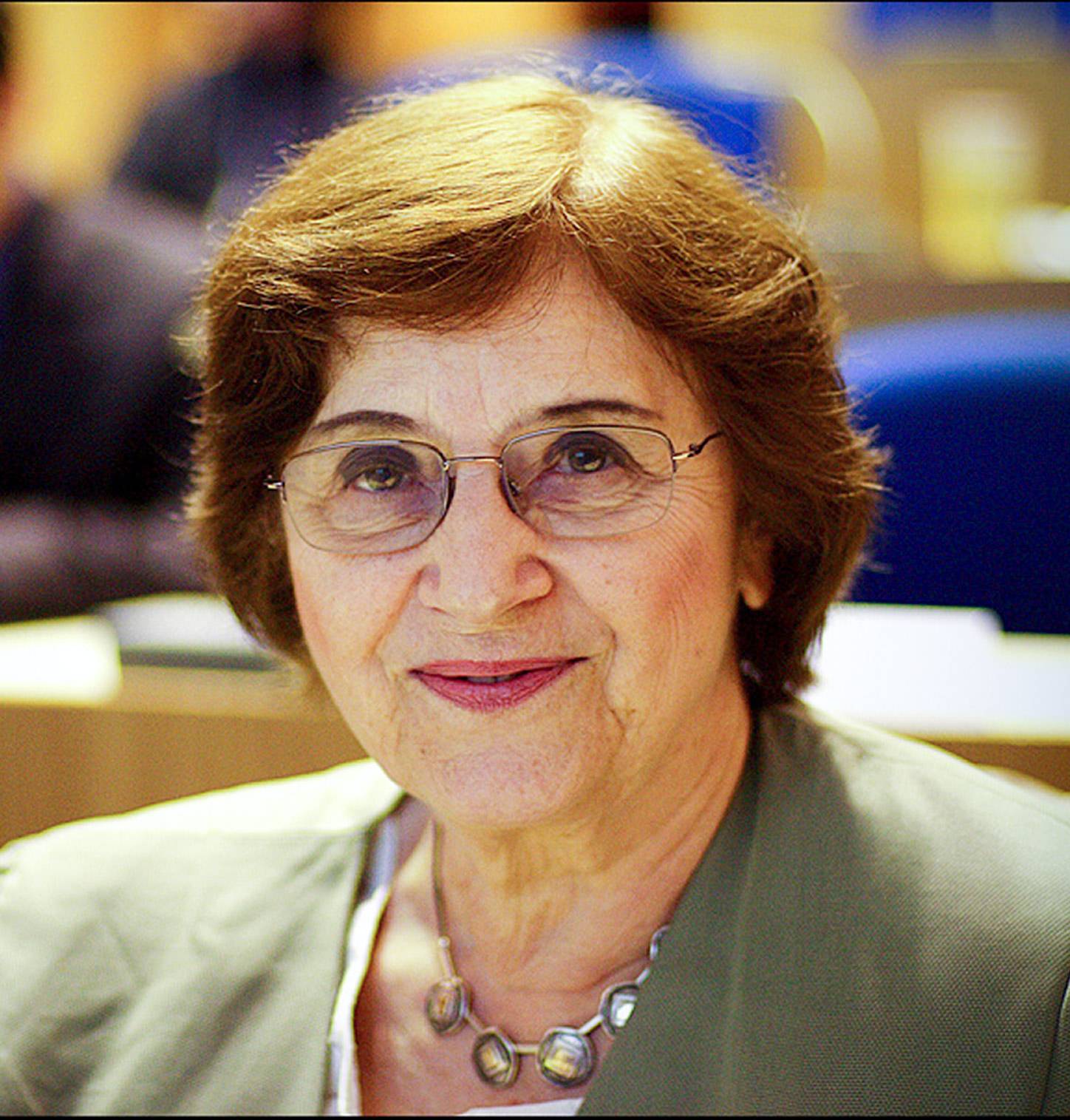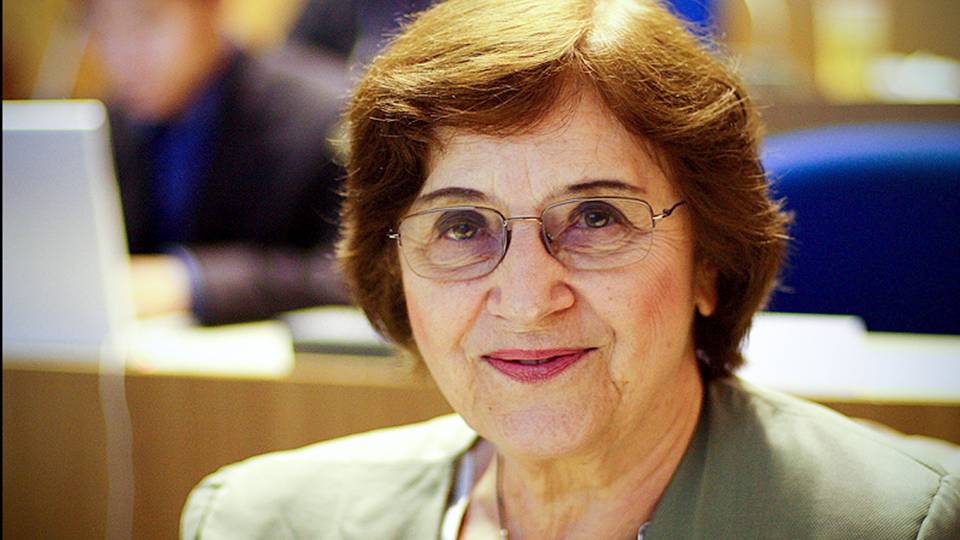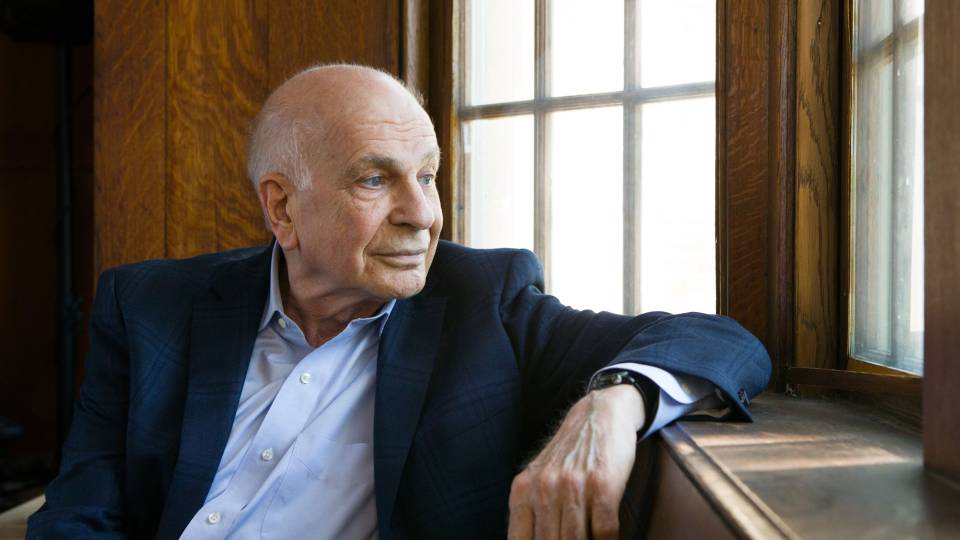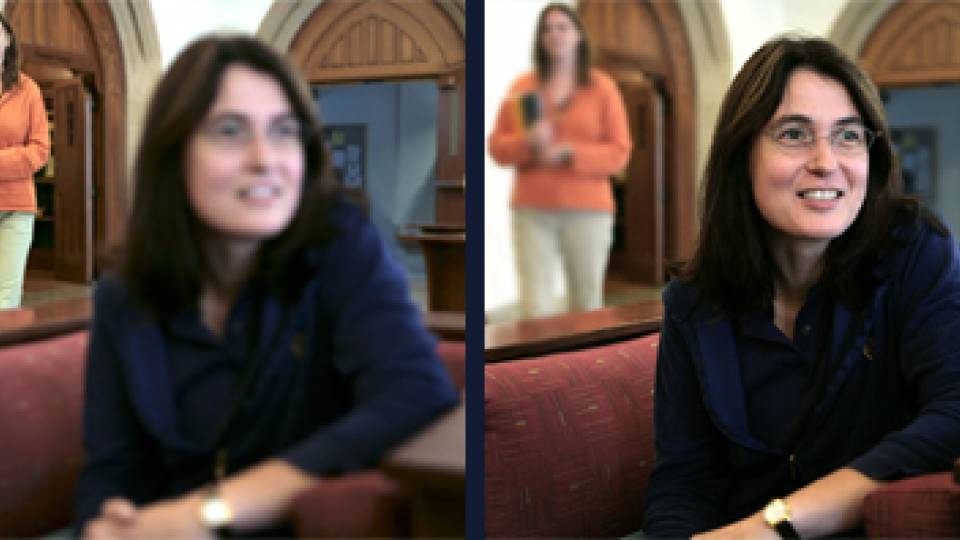Anne Treisman, Princeton's James S. McDonnell Distinguished University Professor of Psychology Emeritus, has been chosen to receive a National Medal of Science, the nation's highest scientific honor.
Treisman, who has made major contributions to the understanding of attention and perception, is among 12 researchers who will receive the award from President Barack Obama during a White House ceremony early this year.
Sidney Drell, who earned a bachelor's degree in physics from Princeton in 1947, will also be honored. He is a professor of theoretical physics emeritus at Stanford University's SLAC National Accelerator Laboratory.
Frances Arnold, who earned a bachelor's degree in mechanical and aerospace engineering from Princeton in 1979, has been chosen as one of 11 inventors to receive the National Medal of Technology and Innovation, and will also be honored at the White House ceremony. She is the Dick and Barbara Dickinson Professor of Chemical Engineering, Bioengineering and Biochemistry at the California Institute of Technology.
"I am proud to honor these inspiring American innovators," Obama said. "They represent the ingenuity and imagination that has long made this nation great — and they remind us of the enormous impact a few good ideas can have when these creative qualities are unleashed in an entrepreneurial environment."
Treisman, who joined the Princeton faculty in 1993 and moved to emeritus status in 2010, has explored how brains build meaningful images from a sea of visual information. Her theory of feature integration proposes that attention acts as a selective window in the brain, linking disparate features of the same object — such as its color, shape, distance and motion — into an integrated whole.
The theory's concepts have been applied in a variety of ways, from airport baggage inspectors employing its principles to scope out hidden weapons to educators using its tenets to design classrooms that stimulate children without overwhelming them.
"Of course I was amazed, and deeply honored," Treisman said about her selection. "I am very happy that psychology is among the subjects selected for the award, although many other psychologists would be at least as deserving to receive it."
Treisman earned her bachelor's degree from the University of Cambridge and her Ph.D. from the University of Oxford. She was previously on the faculties of the University of California-Berkeley, the University of British Columbia and Oxford.
Her work has appeared in 28 book chapters and more than 80 journal articles.
"Psychology has changed enormously in the half-century through which I've been involved in it, starting from a rather narrow behaviorism, through the Cognitive Revolution, to the interactions of linguistics, philosophy and computer science under the cognitive science umbrella, and now with cognitive neuroscience, linking mind to brain," Treisman said. "It has been an exciting ride and impressive progress has been made. I have thoroughly enjoyed both being part of the evolution of ideas myself and communicating them to students."
Sabine Kastner, professor of psychology and the Princeton Neuroscience Institute, said concepts formed by Treisman have influenced generations of scientists in areas including sensory perception, attention and memory.
"One of the amazing things with Anne's work is that it never gets outdated," Kastner said. "As a teacher, I introduce my students to her work as early as possible, and as a scientist, I go back to it over and over again, because I still learn from the seminal work that Anne started in the late '50s and that is still ongoing.
"It is rare that the work of a scientist stays that long. Why did it do so in the case of Anne Treisman? I think that Anne is a true visionary scientist, whose ideas were always way ahead of her time."
Treisman's contributions aren't limited to her groundbreaking research, said Deborah Prentice, the Alexander Stewart 1886 Professor of Psychology and Public Affairs and chair of the Department of Psychology at Princeton.
"I am delighted that Anne is being recognized with the National Medal of Science. Her pioneering research on visual perception alone warrants the honor," Prentice said. "But Anne's contributions to science go well beyond the research that has come out of her laboratory. She has been a valued colleague and mentor to generations of young scientists, and during her years at Princeton, she played a central role in every major decision the psychology department made."
Treisman has been honored with the Warren Medal of the Society of Experimental Psychologists and the Grawemeyer Award in Psychology, which recognizes outstanding ideas in that field. Her other awards include the Cognitive Neuroscience Society's George A. Miller Award, being designated a William James Fellow by the American Psychological Society and winning the Golden Brain Award from the Minerva Foundation.
She is a fellow of the Royal Society in London, the American Philosophical Society, the National Academy of Sciences and the American Academy of Arts and Sciences.
Treisman's award brings to 20 the number of Princeton faculty members who have received the National Medal of Science.
The National Medal of Science was established by Congress in 1959 and is administered by the National Science Foundation. The National Medal of Technology and Innovation was created in 1980 under the auspices of the Department of Commerce's Patent and Trademark Office.



